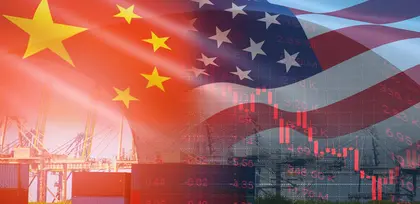Major U.S. technology companies have begun moving production of their products from China to neighboring Asian countries. This was reported by the U.S. edition of The New York Times on Sep. 1.
These companies fear that basing a significant portion of their supply chain in China could draw them into the epicenter of the escalating conflict between China and the U.S, over Taiwan. But for now, China remains the main producer of consumer electronics.
JOIN US ON TELEGRAM
Follow our coverage of the war on the @Kyivpost_official.
Moving forward, components of new Apple and Google smartphones will be produced in India and Vietnam. Apple produces iPads in the north of Vietnam, Amazon creates Fire TV in India, while Microsoft this year delivered Xbox game consoles from Ho Chi Minh City. Several years ago, all these products were built in China.
Production activity in China decreased for the second month in a row in August due to a combination of factors, including new outbreaks of COVID-19, electricity rationing and soaring temperatures.
In addition, the U.S. has banned its companies from exporting chips used in the field of artificial intelligence (AI) to China and Russia. The U.S. expects that the ban will restrain the achievements of competitors in the field of high-performance computing and AI, amid wider concerns that they might be used for military purposes.
This ban applies to the Nvidia Corporation and Advanced Micro Devices (AMD). In response, Nvidia said the federal government will now require it to obtain export licenses to sell two high-end chips used in server systems in data centers.
The Nvidia company has a large customer base in China but sells few of its products in Russia. AMD, on the other hand, has customers in both China and Russia, but hopes that the new restrictions will not have a significant impact on business.
China’s Ministry of Commerce has accused Washington of abusing export control measures by restricting exports of semiconductor-related goods. China argues that this move by the U.S. “will hinder international scientific and technical exchanges and economic cooperation, and affect the stability of global industrial and supply chains and the recovery of the world economy.”
China is also unhappy with the U.S. draft law on providing subsidies in the amount of $52.7 billion for the production of semiconductors and research in this field. This law was signed by U.S. President Joe Biden on Sep 9. The bill also helps make the U.S. more competitive compared to China.
In response, China’s leadership said the law stifles innovation, discriminates against foreign companies and exacerbates geopolitical tensions.
You can also highlight the text and press Ctrl + Enter



